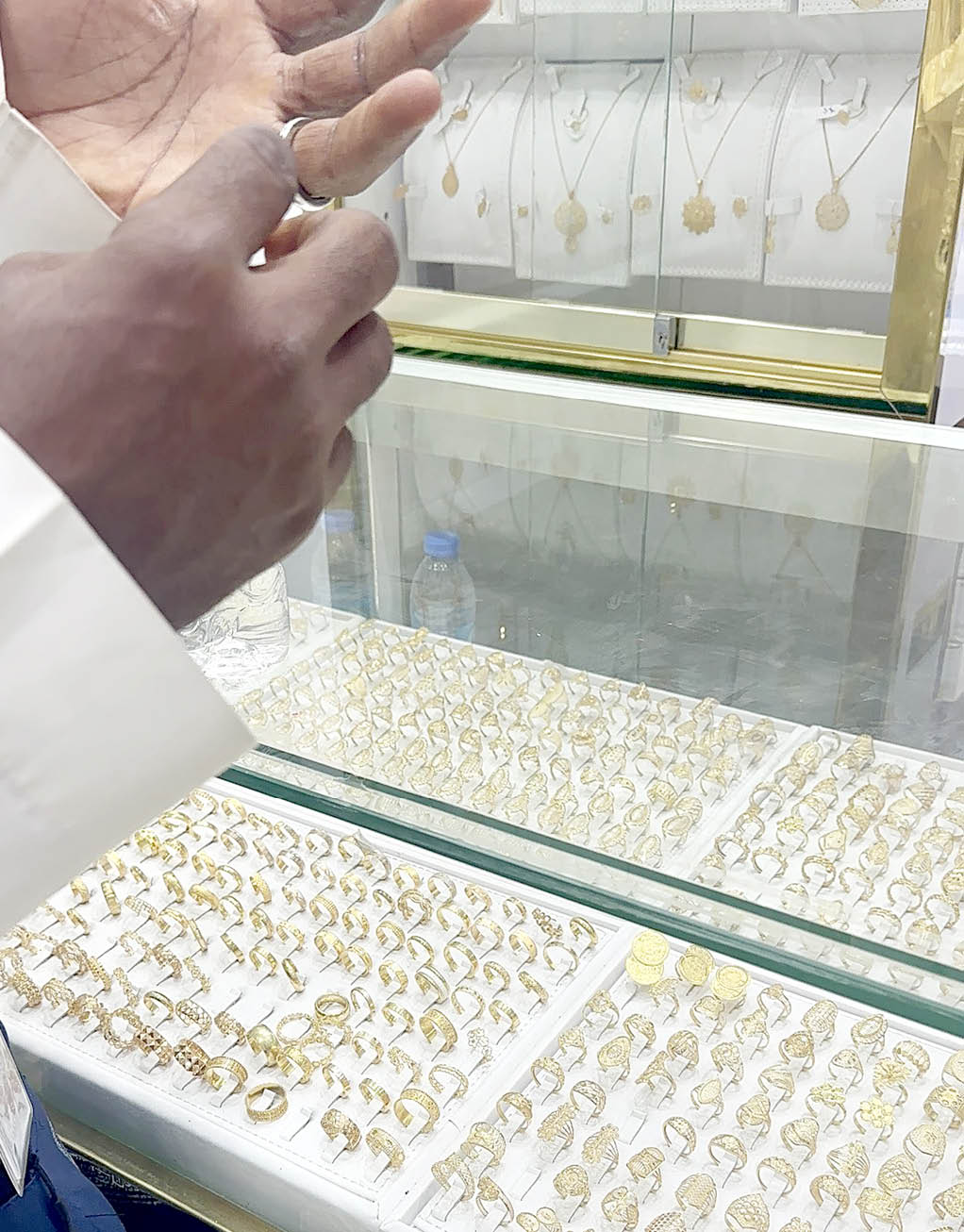Hajj 2024: Naira devaluation shrinks Nigerian pilgrims’ purchasing power
The devaluation of the naira has made it difficult for many Nigerian pilgrims who performed this year’s pilgrimage in Makkah to patronise many shops in the Kingdom of Saudi Arabia. While the dollar to riyal rate has not changed for many years, the seemingly unending naira devaluation has deterred many Nigerian pilgrims from buying several […]

a gold shop in saudi arabia
The devaluation of the naira has made it difficult for many Nigerian pilgrims who performed this year’s pilgrimage in Makkah to patronise many shops in the Kingdom of Saudi Arabia.
While the dollar to riyal rate has not changed for many years, the seemingly unending naira devaluation has deterred many Nigerian pilgrims from buying several items in Saudi Arabia.
The situation became worse after the floating of the naira in 2023, which saw the rate of exchange skyrocketing.
Daily Trust Saturday reports that in Saudi Arabia, after performing the rites of hajj, Nigerian pilgrims are also known to be heavy shoppers, especially in gold, the Arabian clothing popularly known as abaya, and several items for distribution and personal use on arrival in Nigeria.
- Food security: Saudi Arabia to set up farm equipment manufacturing plants in Nigeria – Kyari
- Addressing challenges and inadequacies of NAHCON
But during this year’s hajj, the situation seems to be different, largely due to the devaluation of the naira, as many pilgrims said they could not visit most stores and stalls for shopping.
Last year, one Saudi Riyal (SAR) was exchanged for N169 at the beginning of the year and closed at N240 to one riyal in December.
But as of yesterday, one riyal was exchanged for N401, implying that one would need a large quantity of the naira for any amount of riyal.
Some pilgrims who interacted with our correspondents stated that they found it difficult buying items in Saudi Arabia this year because of the exchange rate.
“Our currency has been weak over time, but it has never been this weak here in Saudi Arabia,” a pilgrim from Abuja, who preferred anonymity, said.
“I gave a cloth to a laundry man and he billed me 16 riyals, which is equivalent to N6,416 at the present exchange rate. Tell me, where would I wash one cloth for N6,000 in Nigeria?
“So, I have made up my mind; I am not buying anything here because you can imagine the exchange rate,” he added.
Daily Trust on Sunday further reports that many of the pilgrims who registered with the state Muslim pilgrims’ boards got less than $500 each as their Basic Travelling Allowance (BTA).
This was despite the fact that the hajj fare cost over N8m this year due to the rise in the exchange rate of the dollar to the naira.
Another pilgrim, Mariam Abu, said, “Why would I throw my money away here? What I can buy in Nigeria, you don’t expect me to come and buy it here and pay three times the price.”
A Lagos-based pilgrim, who came on private sponsorship, said he paid N200,000 in exchange for SAR500.
“I am now being very careful about the way I am spending the money. Anything I can get in Nigeria, I am not buying it here,” he said.
Another pilgrim, Abdulrasheed, said, “A dollar exchanges for SAR3.7, and this has not changed for several years, but I exchanged naira to riyal for N400 from a friend who is based here. I paid as much as N400,000 to get just SAR1,000, I couldn’t believe it.”
Most of the pilgrims called on the government to do something about the devaluation of the naira.
A pilgrim from the FCT said she thought pilgrims would be given $700 just like last year but was surprised when she was handed $200 during airlift.
While noting that she misinformed herself as she was not able to make it to sensitisation programmes, she said it was on the flight she learnt it was $500 BTA per pilgrim.
“It was not a good experience. Thank God I went with my dollar card. I fell sick when I got to the kingdom, but the NAHCON clinics were not operational. I spent on my health on taxis to pray in Masjid Haram in Makkah. It was later we learnt that it was $400 we would be given,” she said.
“The truth is that you can’t buy anything beyond your budget. There are lots of people you will want to buy gifts for, but it’s not possible to get for everybody,” she added.
Abdullahi Hussain, a pilgrim from Taraba State, said he had to depend on the naira he brought from home to augment the allowance given.
“I have finished spending the money I was given in Madinah to buy food and some stuff.
“The cash was exchanged for N500 to 1 Saudi Riyal, while transfer was N400 to one Saudi Riyal. The lowest you get food from street vendors here is 10 riyal; which is N5,000. So, the devaluation of our currency has made things costly,” he added.
For Ibrahim Abubakar who had been preparing for the journey for the past eight years, a friendly advice to buy the dollar before leaving saved him from the little stipend he was given.
“The economic headwind is very bad. I started saving in 2018 when the price was N800,000. I purchased what I could. I can’t say it is enough, but I can’t pass my budget,” he said.
